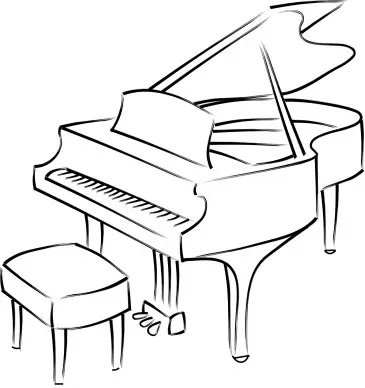Music Dept. Holds Annual Concerto Competition
By ROXANE PARK
On Sunday, Feb 4., at 3:00 p.m., the Academy’s Music Department held its annual Concerto Competition in the Bowld, a large audience gathering to watch seven talented student performances. The competition was judged by three accomplished musicians—pianist Anastasia Antonacos, violinist Joanna Kurkowicz, and oboist Kathleen McNerney—and the chosen winner was pianist and lower Forrest Zeng.
The seven contestants featured in the concert applied for the competition in early January and passed a private preliminary round held on Jan. 21, which was overseen by Exeter Music faculty. Each student selected “a single movement of a concerto or similar work for solo instrument and orchestra,” as instructed by the application description provided by Music Program Administrator Barb Darby. The winner of the competition each year performs the same piece in the spring term with the Academy’s Symphony Orchestra.
The program began with the second movement, Presto, leggiero, of Kalevi Aho’s Flute Concerto performed by floutist and senior Cee McClave. Pianist and lower Evan Fan subsequently performed the first movement, Moderato, of Sergei Rachmaninoff’s Piano Concerto No. 2 in C Minor, Op. 18. Cellist and lower Tristan Price selected the third movement, Allegro molto, of Joseph Haydn’s Conceto No. 1 in C Major, followed by Zeng’s rendition of the first movement, Allegro maestoso, of W. A. Mozart’s Concerto No. 25 in C Major, K. 503. Pianist and lower Benny Wang then performed the first movement, Andantino-Allegretto-Andantino, of Sergei Prokofiev’s Piano Concerto No. 2 in G minor, op. 16. Finally, lower and violinist Martin Yau performed Maurice Ravel’s Tzigane and senior and pianist Lucy Will concluded the concert with movement three, Finale: Alla breve, of Rachmaninoff’s Piano Concerto No. 3 in D minor, Op. 30. The accompanying pianists playing arrangements of the orchestral section included music faculty Jacob Hiser, Jon Sakata, and Silvana Sokolov-Grubb.
After careful deliberation, the judges chose Zeng as the winner, awarding Wang and Price honorable mentions as well.
“I am extremely honored to have had the opportunity to perform at the Concerto Competition,” said Zeng, describing the event, “and so humbled to have received this award. I am so thankful to my fellow musicians for performing brilliantly and being so supportive of each other. I am also thankful for the judges, the faculty who managed the logistics, and the audience, who were very supportive. I am especially grateful for my piano teacher, Dr. Sakata, who performed with me and nurtured our unique interpretation of Mozart’s Piano Concerto No. 25.”
Each musician dedicated months to practicing and perfecting their pieces before the competition. Zeng shared that he was first introduced to the Mozart concerto approximately one year ago. “I didn’t intend to perform it at the Concerto Competition,” he revealed, “but when the auditions were announced, [my teacher and I] decided to audition with the first movement, as I had already developed a fairly mature musical interpretation of the piece.”
In musical performances, interpretation is equally as important as technical execution. “In preparation for the audition and the performance, I practiced frequently and worked on furthering the colors and voices that I could express in the piece,” explained Zeng. “Dr. Sakata and I explored Mozart’s nearly Shakespearean ability to express such a wide range of deeply human emotions. In particular, we worked on directly translating my interpretation into music, trying to make the piano itself disappear in the hopes that the audience might be left with only the candid story that Dr. Sakata and I wanted to tell.”
Having originally not intended to enter the competition, Zeng was surprised to be awarded the top prize. “This is in part due to how “radical” my interpretation is (although Dr. Sakata would disagree), and also in part due to the equally incredible performances I heard,” he acknowledged. “It is extraordinary to know so many astounding musicians, and I say quite frankly that I don’t feel, nor wish to feel, any sense of being a better musician or performer. Music in itself is a common good. Music in itself does not become less when it is divided. I heard that clearly in the performances of all my fellow musicians.”
Zeng will perform with the student Symphony Orchestra in the spring, an experience which he expressed excitement and gratitude for: “In preparation for my performance in the spring, I will continue to work on small details of the piece. I am humbled to have this opportunity to perform with the Exeter Orchestra and to work closely with the music department and Dr. Sakata to perform.”
To view the program and full livestreamed performances, visit the Music Department’s 2023-2024 concert series page online at www.exeter.edu/music-department-concerts.

